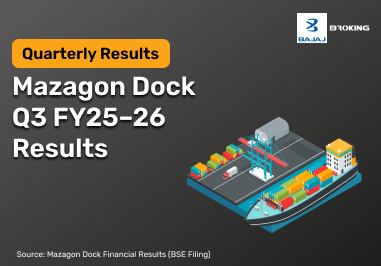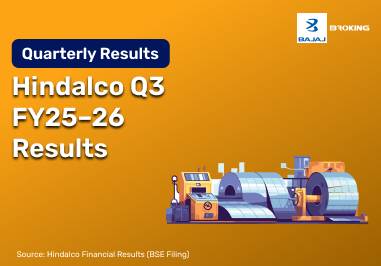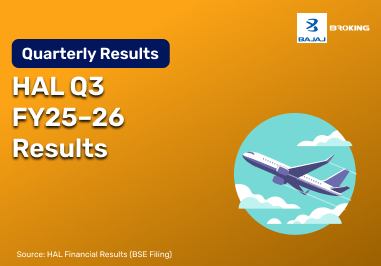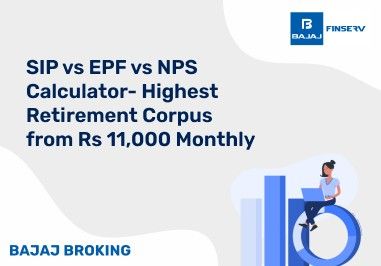A stock screener is a powerful tool used by investors and traders to filter stocks based on predefined criteria. By applying various filters such as market capitalisation, price-to-earnings ratio, dividend yield, and stock performance, users can quickly identify potential investment opportunities. Whether trading in intraday trading, futures and options, or planning to invest in mutual funds, a stock screener helps simplify market research. It enables investors to track key indices like Nifty 50 price, BSE Sensex, and Bank Nifty index price while analysing stocks that meet their specific investment goals. This tool is particularly useful for both beginners and experienced traders.
What is a Stock Screener?
A stock screener is an online tool that helps investors and traders filter stocks based on customised parameters. It enables users to scan thousands of stocks listed on stock exchanges such as the BSE and NSE to identify investment opportunities. Stock screeners allow traders to focus on specific stock characteristics such as industry sector, market cap, financial ratios, or price movement.
For example, a trader using a stock screener can set criteria such as companies with a high dividend yield or stocks trading at a discount compared to their book value. Investors who participate in margin trading facility (MTF) or futures and options trading rely on stock screeners to find stocks with high liquidity and volatility. The primary goal of using a stock screener is to narrow down stock choices and make informed investment decisions.
How Do Stock Screeners Work?
Stock screeners work by allowing users to set specific parameters that filter out stocks based on predefined conditions. Investors input filters such as price range, volume, moving averages, or earnings growth to identify stocks that meet their trading or investment strategy.
Most online trading platforms and financial websites offer stock screeners with built-in and customisable filters. For instance, if a trader wants to find stocks trading near their 52-week low while maintaining strong fundamentals, they can input these criteria into the screener. Stock screeners also provide real-time or historical data, allowing traders to conduct technical and fundamental analysis before making a decision.
Advanced stock screeners integrate data from Nifty 50 price, BSE Sensex, and Bank Nifty index price to help investors track sector-wise performance. By automating the stock selection process, stock screeners save time and improve decision-making efficiency for retail and institutional traders alike.
Key Features of a Stock Screener
- Customisable Filters – Users can set filters like market cap, P/E ratio, dividend yield, and more.
- Real-Time Data – Some stock screeners offer live market data to help traders in intraday trading.
- Technical Indicators – Includes RSI, moving averages, MACD, and Bollinger Bands for technical analysis.
- Fundamental Analysis Metrics – Provides financial ratios like ROE, ROA, and EPS growth.
- Predefined and Custom Screens – Offers ready-to-use screening options and personalised filters.
- Sector and Industry Filtering – Allows investors to focus on specific industries or market sectors.
- Backtesting Capability – Some advanced screeners enable backtesting of strategies with historical data.
- Integration with Trading Account Online – Many screeners connect directly to brokerage platforms for faster trade execution.
Uses of a Stock Screener
Stock screeners serve multiple purposes, catering to different types of investors and traders. For long-term investors, stock screeners help identify fundamentally strong stocks that align with their financial goals, such as those with consistent earnings growth and strong dividend yields. Traders engaging in intraday trading use screeners to find stocks with high volatility and trading volume.
Stock screeners also assist investors in tracking market indices like Nifty 50 price, BSE Sensex, and Bank Nifty index price. Additionally, traders in futures and options markets can use stock screeners to select stocks with high open interest and favourable technical indicators. Those looking to invest in bonds or invest in mutual funds can use stock screeners to identify fund-related stocks that align with their risk tolerance.
Limitations of a Stock Screener
Stock screeners are powerful tools but have certain limitations. They rely on historical and numerical data, which may not capture sudden market shifts or external influences. While they provide valuable insights, they cannot predict future market movements with certainty. Additionally, traders need to carefully choose filters, as selecting the wrong criteria may lead to misleading results.
Potential Bias
Stock screeners may introduce bias based on the filters set by the user. If an investor relies too heavily on past performance, they might miss out on emerging stocks with strong growth potential. Additionally, certain screeners may rank stocks based on outdated or irrelevant criteria, leading to inaccurate investment choices.
Need for Specific Criteria
A stock screener is only as effective as the parameters used. If a trader applies too many filters, they may end up with very few stocks, limiting investment opportunities. On the other hand, using broad filters can generate a list of irrelevant stocks, making the screening process inefficient.
Invalid Comparisons
Some stock screeners do not consider industry-specific benchmarks, leading to invalid comparisons. For instance, comparing technology stocks with banking stocks based on the same financial ratios may not be meaningful. Investors must ensure that comparisons are relevant to the industry and market conditions.
Quantitative Comparison Only
Stock screeners primarily focus on quantitative data such as financial ratios and stock prices. However, they do not factor in qualitative aspects like management efficiency, industry trends, or macroeconomic conditions, which play a crucial role in stock selection.
Stock Screener Pros and Cons
Stock screeners offer numerous benefits, including time efficiency, improved research capabilities, and easy access to market data. They enable traders to filter stocks based on multiple criteria, helping them make well-informed decisions. However, screeners have limitations, such as the potential for data lag, inability to factor in qualitative aspects, and dependence on historical trends.
For traders using a trading account online, stock screeners simplify market research by automating stock selection. Despite their drawbacks, they remain valuable tools for investors involved in intraday trading, futures and options, and long-term investing strategies.
Stock Screener vs. Stock Scanner
Feature
| Stock Screener
| Stock Scanner
|
Purpose
| Filters stocks based on preset conditions
| Identifies real-time trading opportunities
|
Data Type
| Uses historical and fundamental data
| Uses real-time market data
|
Use Case
| Good for long-term investors and research
| Good for intraday traders and active investors
|
Functionality
| Static screening based on fixed criteria
| Dynamic scanning with live price movements
|
Trading Integration
| Can integrate with trading accounts
| Works in real-time to suggest immediate trades
|
Popular Stock Screeners
Several stock screeners are widely used in the market. Some popular ones include TradingView, Screener.in, Moneycontrol Stock Screener, and NSE and BSE stock screeners. These platforms provide various filters and real-time data to help investors select stocks efficiently. Investors trading in margin trading facility (MTF), futures and options, and equity markets benefit from these tools in identifying potential stocks.
Example of a Stock Screener in Action
Suppose an investor wants to find undervalued stocks in the banking sector. They use a stock screener to filter stocks with a low P/E ratio, high return on equity, and a strong dividend yield. The screener generates a list of potential stocks, allowing the investor to further analyse their financial health and market trends before making an investment decision.
Tips for Using Stock Screeners Effectively
- Use Multiple Filters – Combine technical and fundamental criteria for better accuracy.
- Validate Results with Research – Do not rely solely on screeners; analyse market conditions.
- Monitor Market Indices – Track Nifty 50 price, BSE Sensex, and Bank Nifty index price for better insights.
- Adjust Criteria Over Time – Modify screening parameters as market trends evolve.
- Avoid Over-Filtering – Too many filters may limit potential stock choices.
Conclusion
Stock screeners are valuable tools for investors looking to simplify stock selection and market research. They enable traders to apply custom filters and identify potential investment opportunities in intraday trading, futures and options, and long-term investments. However, traders must combine stock screener results with fundamental research, market trends, and qualitative factors for optimal investment decisions.















